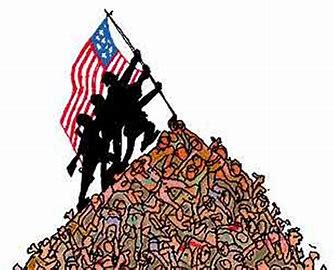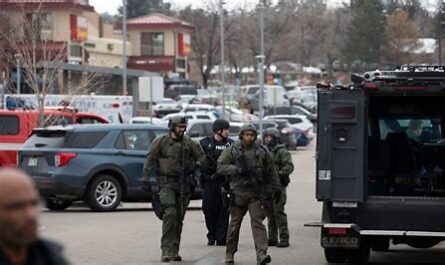Title: Unveiling the Complexities of Crimes of War: Understanding, Consequences, and Accountability in the United States
Abstract:
Crimes of war represent a dark aspect of human conflict, where the rules of engagement are discarded, and brutality reigns. In the context of the United States, involvement in conflicts both domestically and abroad has raised questions about the ethics, legality, and consequences of wartime actions. From incidents of torture and abuse in detention facilities to civilian casualties caused by airstrikes, crimes of war challenge fundamental principles of morality, international law, and human rights. This essay offers a comprehensive exploration of crimes of war in the United States, delving into their historical context, legal frameworks, and societal impacts. Through case studies, analysis of international treaties, and examination of accountability mechanisms, it seeks to shed light on the complexities of wartime violence and the imperative of ensuring justice for victims.
Introduction:
Crimes of war, also known as war crimes, represent egregious violations
of international humanitarian law committed during armed conflict.
These violations include targeting civilians, indiscriminate attacks, torture, sexual violence, and other atrocities that defy the principles of humanity, dignity, and respect for human rights. In the context of the United States, involvement in conflicts such as the Vietnam War, the Iraq War, and the War on Terror has raised significant questions about the legality, morality, and accountability of wartime actions.

This essay aims to provide a comprehensive examination of crimes of war in the United States, exploring their historical origins, legal frameworks, and societal impacts. By analyzing case studies, international treaties, and accountability mechanisms, it seeks to deepen understanding of the complexities of wartime violence and the imperative of upholding justice and accountability in times of conflict.
Historical Context of Crimes of War:
The history of crimes of war is as old as warfare itself, with numerous examples of atrocities committed in the heat of battle or as part of systematic campaigns of violence. Throughout history, soldiers and civilians alike have been subjected to acts of cruelty, brutality, and inhumanity that defy comprehension. Some of the key historical examples of crimes of war include:
World War II:
The atrocities committed during World War II, including the Holocaust, the bombing of civilian populations, and the use of chemical weapons, shocked the world and led to the development of international legal frameworks to prevent such horrors from recurring.
Vietnam War:
The Vietnam War was marked by numerous violations of international humanitarian law, including the massacre at My Lai, where hundreds of unarmed civilians were killed by American soldiers, and the widespread use of torture and abuse in detention facilities such as the infamous “tiger cages.”
Iraq War and War on Terror:
The wars in Iraq and Afghanistan, waged as part of the War on Terror following the September 11 attacks, were marred by allegations of war crimes, including the abuse of detainees at Abu Ghraib prison, the use of torture and rendition, and the killing of civilians in drone strikes and night raids.
Legal Frameworks for Addressing Crimes of War:

The international legal framework for addressing crimes of war is based on a set of treaties, conventions, and customary international law principles that govern the conduct of armed conflict and establish standards for the protection of civilians and combatants. Some key legal instruments relevant to crimes of war include:
Geneva Conventions:
The four Geneva Conventions of 1949 and their Additional Protocols set forth the rules governing the conduct of armed conflict, including the protection of civilians, prisoners of war, and non-combatants. These conventions establish fundamental principles of humanity, proportionality, and distinction between military and civilian targets.
Rome Statute of the International Criminal Court (ICC):
The Rome Statute, adopted in 1998, established the International Criminal Court (ICC) as a permanent tribunal with jurisdiction over the most serious crimes of international concern, including war crimes, crimes against humanity, and genocide. The ICC has the authority to prosecute individuals responsible for crimes of war when national authorities are unable or unwilling to do so.
Customary International Law:
Customary international law consists of general principles and practices that are recognized as binding on all states, regardless of whether they are codified in treaties or conventions. Customary norms relevant to crimes of war include the prohibition of targeting civilians, the prohibition of torture and inhuman treatment, and the obligation to provide humane treatment to prisoners of war.
National Legislation:
Many countries, including the United States, have enacted domestic legislation to implement their obligations under international humanitarian law and to prosecute individuals responsible for war crimes committed by their nationals or within their territory. In the United States, the War Crimes Act of 1996 criminalizes certain grave breaches of the Geneva Conventions and other violations of the laws of war.
Societal Impacts of Crimes of War:

Crimes of war have profound societal impacts that extend far beyond the immediate victims and perpetrators, shaping collective memory, political discourse, and cultural narratives about war and conflict. Some of the key societal impacts of crimes of war include:
Trauma and Suffering:
Crimes of war inflict profound trauma and suffering on victims and survivors, leaving lasting physical, psychological, and emotional scars that may endure for generations. The impact of war crimes extends beyond individual victims to entire communities, creating a legacy of pain, loss, and intergenerational trauma.
Erosion of Trust and Legitimacy:
Crimes of war erode trust in institutions, undermine confidence in the rule of law, and delegitimize the authority of governments and military forces responsible for upholding international humanitarian norms. The failure to hold perpetrators accountable for their actions can fuel resentment, distrust, and cycles of violence that perpetuate conflict and instability.
Humanitarian Crisis:
Crimes of war contribute to humanitarian crises characterized by widespread displacement, food insecurity, and lack of access to essential services such as healthcare, education, and clean water. The destruction of infrastructure, the disruption of livelihoods, and the displacement of populations exacerbate the suffering of civilians caught in the crossfire of armed conflict.
Polarization and Radicalization:
Crimes of war can fuel polarization and radicalization, driving individuals and communities towards extremist ideologies and violent forms of resistance. The perception of injustice, impunity, and double standards in the application of international law can breed resentment and hostility, creating fertile ground for recruitment by extremist groups and terrorist organizations.
Accountability Mechanisms for Crimes of War:
Ensuring accountability for crimes of war is essential to upholding the rule of law, promoting justice, and deterring future violations of international humanitarian norms. Some key accountability mechanisms for crimes of war include:

International Criminal Tribunals
International criminal tribunals, such as the International Criminal Tribunal for the former Yugoslavia (ICTY) and the International Criminal Tribunal for Rwanda (ICTR), have been established to prosecute individuals responsible for war crimes, crimes against humanity, and genocide committed during specific conflicts. These tribunals provide a forum for victims to seek justice and for perpetrators to be held accountable for their actions.
Hybrid and Specialized Courts:
Hybrid and specialized courts, such as the Special Court for Sierra Leone and the Extraordinary Chambers in the Courts of Cambodia, combine international and national elements to prosecute war crimes and other serious violations of international law. These courts are often established with the support of the international community to address impunity for atrocities committed during conflicts.
National Prosecutions:
National authorities have a primary responsibility to investigate and prosecute crimes of war committed by their nationals or within their territory. National prosecutions may take place under domestic criminal law or through specialized mechanisms established to address war crimes, such as military tribunals or specialized war crimes units within national prosecutorial offices.
Truth and Reconciliation Processes:
Truth and reconciliation processes, such as those established in South Africa and Guatemala, provide opportunities for victims and perpetrators of crimes of war to confront the past, acknowledge wrongdoing, and work towards healing and reconciliation. These processes aim to address the root causes of conflict, promote accountability, and build trust and understanding among divided communities.

Conclusion:
Crimes of war represent a profound betrayal of humanity and a stark reminder of the brutality and inhumanity that can accompany armed conflict. In the United States, involvement in conflicts both domestically and abroad has raised challenging questions about the ethics, legality, and consequences of wartime actions. By exploring the historical context, legal frameworks, societal impacts, and accountability mechanisms associated with crimes of war, this essay seeks to deepen understanding of this complex and troubling phenomenon. Ultimately, ensuring justice and accountability for crimes of war is essential to upholding the rule of law, promoting human rights, and preventing future atrocities. Only by confronting the past, acknowledging wrongdoing, and working towards reconciliation can societies affected by crimes of war hope to heal the wounds of conflict and build a more peaceful and just future for all.



